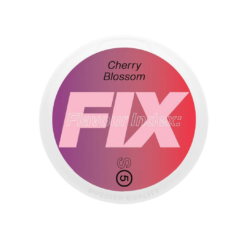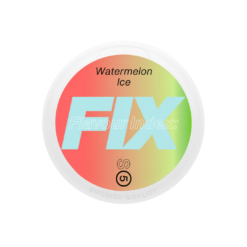As vaping continues to grow in popularity among adult smokers seeking alternatives to traditional cigarettes, there is increasing interest in understanding how vaping may influence overall health, including chronic conditions like diabetes.
A frequently asked question is whether vaping affects blood sugar levels. For people living with diabetes or those concerned about glucose sensitivity, knowing the potential impacts of e-liquids and nicotine on blood glucose control is important.
In this comprehensive guide, we explore the relationship between vaping and blood sugar levels by looking at what the latest research says, how key ingredients in e-liquids may play a role, and what practical steps can help ensure safer vaping for those managing diabetes.
Understanding Vaping And Its Key Components
Before diving into the potential effects on blood sugar, it is important to understand what ingredients can be found in e-liquids:
- Propylene glycol (PG): A common base liquid that provides the “throat hit.”
- Vegetable glycerin (VG): A thicker liquid that produces dense vapour clouds.
- Nicotine: The addictive stimulant also found in tobacco products.
- Flavourings: Natural or artificial substances that create flavour profiles.
Although e-liquids do not contain actual sugar, these ingredients may indirectly affect the body’s glucose management, particularly for individuals with insulin-related issues.
Nicotine’s Effect On Insulin Sensitivity
One of the most significant factors linking vaping and blood sugar is nicotine. Several studies have shown that nicotine reduces insulin sensitivity, meaning the body’s ability to respond to insulin is impaired.
For people with type 1 or type 2 diabetes, reduced insulin sensitivity can make it harder to control blood sugar levels, potentially leading to hyperglycemia (high blood sugar).
If you vape nicotine-containing products, it is essential to be aware that nicotine might make it harder for your body to regulate glucose, possibly complicating diabetes management.
Do PG And VG Affect Blood Sugar?
While propylene glycol (PG) and vegetable glycerin (VG) are not sugars, they are alcohol-based compounds that can release small amounts of glucose or glycerol derivatives when metabolised.
For most healthy individuals, these metabolic by-products are minimal and unlikely to affect blood sugar significantly. However, for people with diabetes, especially those with fluctuating glucose levels, the cumulative effect of regular vaping may cause mild increases in blood glucose.
Although PG and VG have a low impact on glucose metabolism, individuals with sensitive blood sugar control should monitor levels when introducing vaping into their lifestyle.
The Role Of Dehydration In Blood Sugar Spikes
An often-overlooked side effect of vaping – especially with PG-heavy e-liquids – is dehydration. PG can dry out the mouth and throat, leading to overall reduced hydration.
Dehydration can increase blood glucose concentration while potentially reducing circulation and impairing insulin’s effectiveness.
Pros And Cons Of Vaping For People With Diabetes
Although there are significant pros of vaping over smoking, individuals with glucose sensitivities need to consider a few factors before taking up vaping.
Pros:
- No combustion & less tar: Vaping eliminates tar and many other harmful by-products of smoking, which can reduce cardiovascular risk – a critical benefit for diabetics.
- Nicotine control: Many e-liquids allow users to select nicotine strength, including zero nicotine, which helps in managing nicotine exposure over time.
- Flavour options: E-liquids come in a variety of flavours, allowing users to choose between countless options to suit their taste. Sweet e-liquids may even help manage cravings, allowing you to enjoy a treat without consuming any additional sugars.
Cons:
- Nicotine’s effect on insulin sensitivity: As mentioned, nicotine can hinder insulin’s action, making glucose harder to regulate.
- Potential dehydration: PG-induced dry mouth can indirectly impact blood sugar.
- Possible flavour triggers: Dessert or sweet e-liquid flavours may stimulate cravings for sugary foods, which could affect blood sugar management indirectly.
Tips For Vaping Safely With Diabetes
If you have diabetes and choose to vape, there are a few guidelines you can follow to help minimise risks.
Choose Low-Nicotine Or Nicotine-Free E-liquids
Nicotine impacts insulin sensitivity, so opting for lower nicotine concentrations or nicotine-free options is a good way to avoid complications. Vaperite offers a range of lower-strength and nicotine-free e-liquids.
Monitor Blood Sugar Levels More Frequently
If you have recently started vaping or changed your e-liquid, it is wise to track your blood glucose more closely. This allows you to notice patterns and adjust your management plan as needed.
Stay Hydrated
Since vaping can cause mild dehydration, drinking plenty of water can help maintain better blood glucose control and overall health.
Avoid Or Switch To Sweet Or Dessert Flavours
Flavours that mimic desserts or candy may trigger sugar cravings, leading to unhealthy snacking. Opt for neutral or light flavours like mint or menthol to avoid this pitfall. However, other users may find that sweet e-liquids satisfy cravings, so it depends on how you react to sweeter flavours.
Consult With Your Doctor
Always discuss vaping with your healthcare provider, especially if you are managing diabetes. They can help guide you in choosing products that fit your health goals.
Alternatives To Vaping For Those With Diabetes
If you are concerned about how vaping might affect your blood sugar, consider these safer nicotine alternatives:
Nicotine Pouches
Brands like Fix offer discreet nicotine pouches that do not involve inhaling PG or VG, making them a less risky option for those with blood sugar concerns.
Recommended products
-
FIX – Cherry Blossom – 14g
R125.00 -
FIX – Sweet Mint Lemon – 14g
R125.00 -
FIX – Watermelon Ice – 14g
R125.00 -
FIX – Pineapple Rum Coconut – 14g
R125.00
Nicotine Gum
Nicotine gum provides a way to manage cravings without affecting blood sugar directly. Widely used in nicotine replacement therapy, it is a controlled method to wean off nicotine.
Nicotine Patches
Patches deliver a steady, slow-release dose of nicotine without spikes or the need to inhale any substance – potentially causing less impact on insulin sensitivity.
Frequently Asked Questions About Vaping For Diabetics
Have a look at some frequently asked questions regarding vaping as a diabetic to broaden your knowledge.
Does Vaping Raise Blood Sugar?
While e-liquids contain no actual sugar, ingredients like PG, VG, and nicotine can indirectly affect blood sugar. Nicotine, in particular, reduces insulin sensitivity, making glucose control more difficult.
Is Nicotine Safe For Diabetics?
Nicotine is not inherently dangerous but can make it more challenging to regulate blood sugar due to its effect on insulin sensitivity. Reducing nicotine intake is recommended for those with diabetes.
Can Vaping Cause Weight Gain Or Loss For Diabetics?
Vaping itself does not directly impact weight, but sweet flavours might increase sugar cravings, indirectly influencing weight gain if not managed.
What Are The Best E-liquids For People With Diabetes?
Nicotine-free or low-nicotine e-liquids with neutral flavours are safest.
Should Diabetics Avoid Vaping Completely?
Not necessarily – with careful product selection, low nicotine intake, and proper monitoring, vaping can be an alternative to smoking. Professional medical advice is always recommended.
While vaping may present a less harmful alternative to smoking, people with diabetes should approach it carefully.
The nicotine content in e-liquids can reduce insulin sensitivity, making blood sugar control more difficult. Additionally, PG and VG, though minor in effect, may contribute small increases to glucose levels. Dehydration, another potential side effect, can also cause blood sugar to rise.
However, with thoughtful choices – such as low-nicotine or nicotine-free e-liquids, neutral flavours, and consistent glucose monitoring – vaping can be done more safely by those managing diabetes.
Always consult a healthcare provider before introducing vaping into your lifestyle if you have diabetes. Tailored advice from medical professionals will ensure that your approach to vaping supports rather than hinders your health goals.










